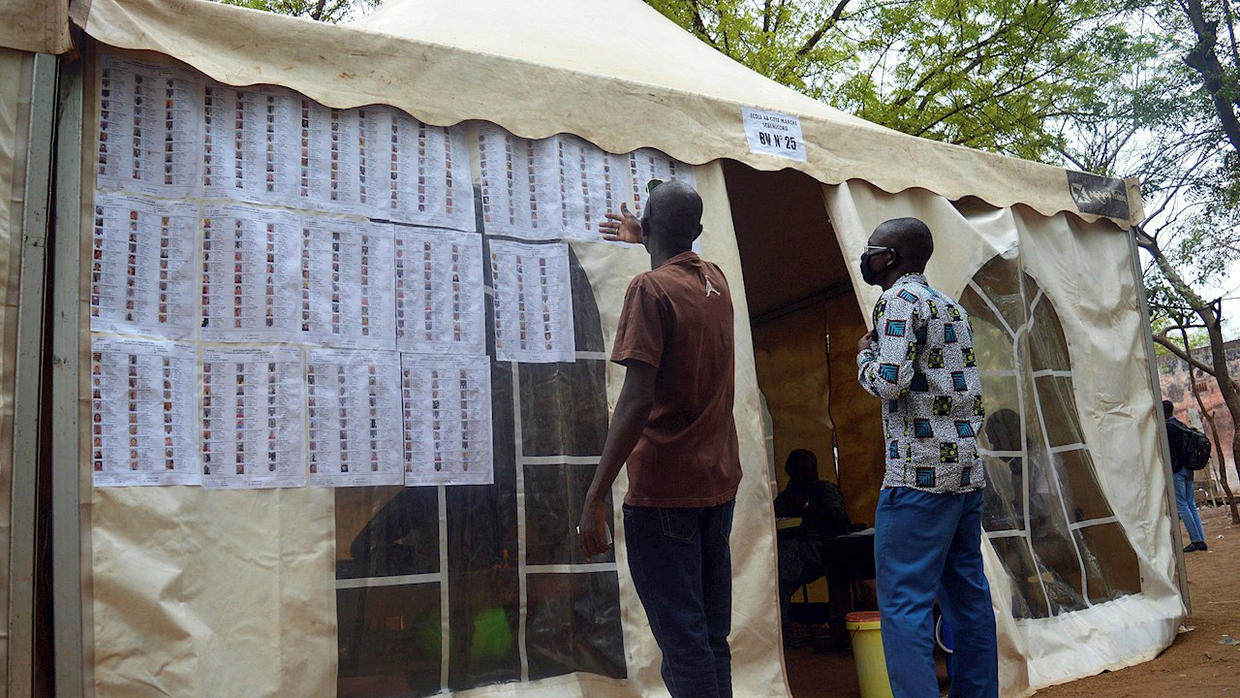
Issued on: Modified:
Polls opened in Mali Sunday for the final round of legislative elections aimed at reviving public faith in the country’s embattled institutions despite a bloody jihadist conflict and the coronavirus pandemic.
Voters in Mali, one of the world’s most impoverished nations with a population of 19 million, were casting their ballots in the runoff for 147 seats in the National Assembly.
The elections have been repeatedly delayed, eroding trust in institutions as the country struggles with an Islamist revolt that has claimed thousands of lives and forced hundreds of thousands from their homes.
The Covid-19 pandemic has exacerbated threats, with Mali recording 13 deaths out of more than 200 cases, a relatively low toll, but one that experts warn is likely to rise.
The first round on March 29 was disrupted by jihadist attacks and intimidation, including the kidnapping of opposition leader Soumaila Cisse.
The turnout nationwide averaged 35.6 percent, but was just 12.9 percent in the capital Bamako.
It is the country’s first parliamentary poll since 2013 when President Ibrahim Boubacar Keita‘s Rally for Mali party won a large majority.
Delays over security threats
The elections were meant to take place in late 2018 after Keita was returned to office but the poll was postponed several times, mainly because of security concerns.
A “national dialogue” staged last year to discuss Mali’s spiral of violence called for the ballot to be completed by May.
The hope is that the new MPs will endorse changes to the constitution that will promote decentralisation.
That is the key to pushing ahead with the government’s plans for peace — it signed a deal with armed separatists in northern Mali in 2015 but the pact has largely stalled.
Violence in northern Mali began in 2012 and was then fanned by jihadists.
Defying thousands of French and UN troops, the jihadists took their campaign into the centre of the country and now threaten neighbouring Burkina Faso and Niger.
Mali’s conflict zones and poor healthcare infrastructure place it in the category of countries that health experts say are at high risk of coronavirus.
An election-monitoring NGO warned about social distancing in Sunday’s vote. Keita said “every health and security” precaution will be “rigorously applied”.
(FRANCE 24 with AFP)
Source: France 24
